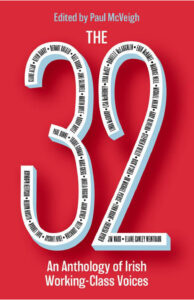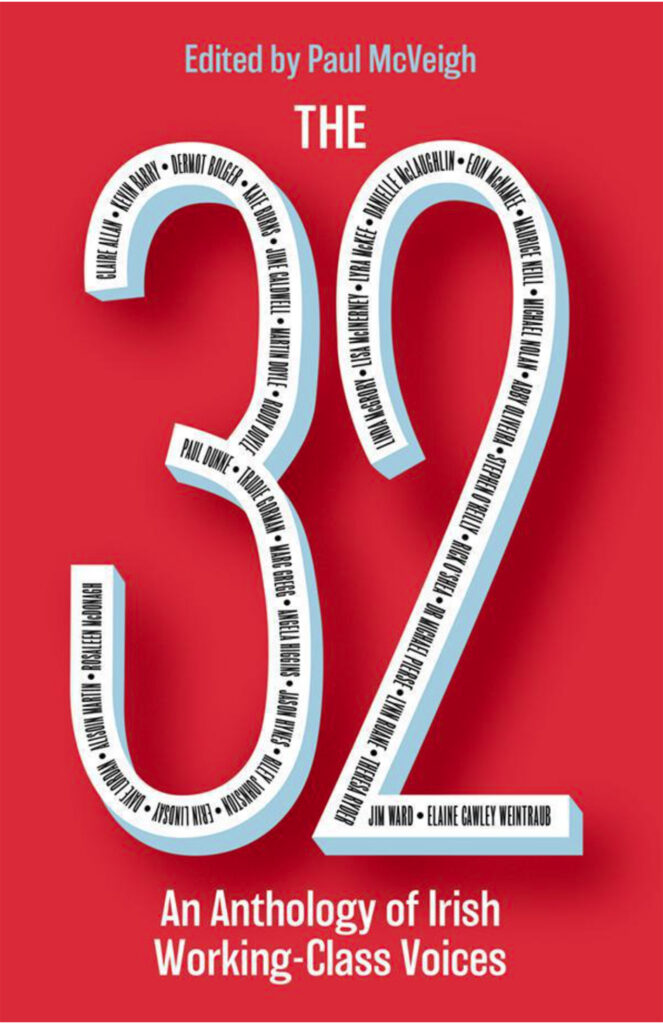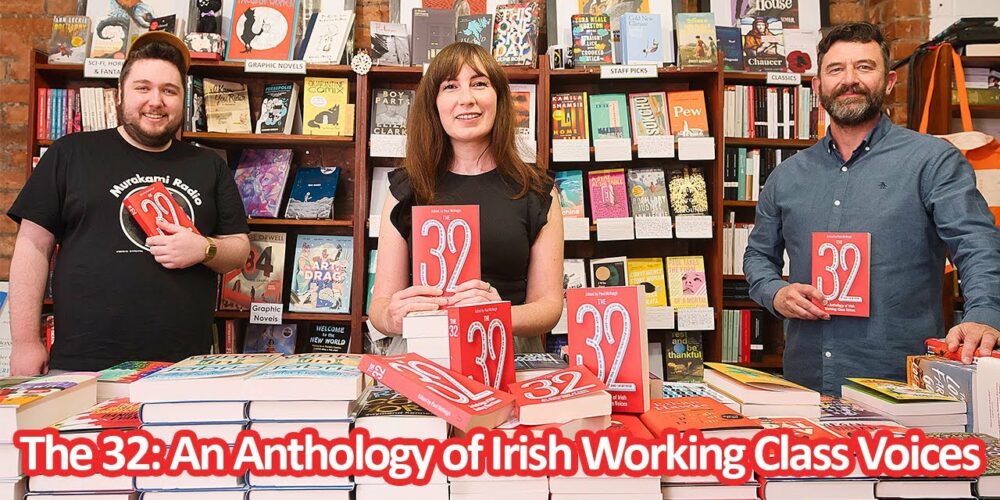The 32: An Anthology of Irish Working-Class Voices, edited by Paul McVeigh, 2021 (€12.50 / £8.75)
Working-class writing is coming to the fore in Ireland. The 32 follows the publication of two anthologies of working people’s writing, The Children of the Nation (Culture Matters, 2019) and From the Plough to the Stars (Culture Matters, 2020).
All three anthologies stand out in the literary landscape for being just that: anthologies. Much as the publications of individual working-class writers must be admired for breaking through the class barriers in the publishing industry, these anthologies together give a strong sense of the voice of a class speaking—the strength that arises from standing together.
One of the questions raised is how to define the working class. It means to be poor, and scorned by the establishment, those who dominate education, culture, politics, the media. They reinforce their preconceived, ill-informed notions of the working class by all means at their disposal.

This motivates taking charge of one’s own narrative, a theme that recurs throughout the collection. However, unless cultural workers, trade unions and universities acknowledge this and redress it, these anthologies will achieve little.
Kevin Barry, writing in “The Gaatch,” points to where establishment prejudice invariably leads: “On Thursday mornings I attended the sittings of Limerick District Court. I did the courts for a couple of years, and I can’t remember ever hearing a working-class defendant’s word taken over the word of a guard. You could predict with high accuracy the forthcoming judgements from the look of the defendant taking to the witness stand. If he or she had a working-class kind of gaatch to them—as we’d say in Limerick, meaning that they carried themselves in a certain way, dressed in a certain way, spoke in a certain way—they would very likely be found guilty.”
Being presumed guilty because of belonging to the dispossessed is reiterated in Rosaleen McDonagh’s experience as one of the Travelling community.
And so, the importance of speech, dress, address and school appear time and again in these texts. The greatest part of these are memoir, or “faction.” Class barriers are seen and cited all the way. Education is viewed as a way out. Many of the writers describe the difficulty of pursuing a writing career.
In the introduction to From the Plough to the Stars we define: “Our understanding of ‘working class’ are those people who sell their labour power and share only marginally in the fruits of their labour. They create the basis of national wealth, yet their living conditions are frequently precarious. This includes the urban and rural proletariat, small farmers as a peripheral group, as well as the rising number of people in precarious employment, the homeless and the unemployed.”
In some of the texts you find a sense of solidarity and pride in class, the sense that surely poverty and lack of education are not the ultimate and eternal definition of working class, that this class has the potential to challenge the society that keeps it on the poverty line.
This strength, this process of liberation, is a hallmark of Maxim Gorky’s working-class writing. It envisages a society where there is little difference in income and living standard between the skilled industrial workers, farmers, and professionals. In this (socialist) society, being working class does not spell poverty, poor education, and neglect by society: it is entirely possible to be a working-class intellectual.
And it is important to know that it was in the USSR, later the other socialist countries, that working-class history and working-class art first became the subject of academic research. It is ignorant and damaging to be told that having achieved a university education, or working in the arts, means that one is no longer working class. It is important to bear this in mind when discussing “working class.”
The texts in The 32 deal with contemporary Ireland, the lived experience of the writers, ranging from the 1950s to 2020. Paul McVeigh has achieved a good balance of contributions from the Republic as well as the North. Here the sectarian prejudice against the Catholic population adds significantly to social inequality, as several contributors attest.
Regrettably, no texts in Irish are included. This would have paid necessary tribute to the long tradition of working-class writing in Irish. The exclusion of this tradition by the literary industry is shameful and needs to be challenged by those who have taken up the pen to put an end to social injustice.
Along with The Children of the Nation and From the Plough to the Stars, The 32 presents a differentiated image of what it means to be working-class in Ireland today. These three anthologies will be followed by a fourth publication by Culture Matters in November this year, Land of the Ever Young, a beautifully illustrated book of working people’s writing for children.







